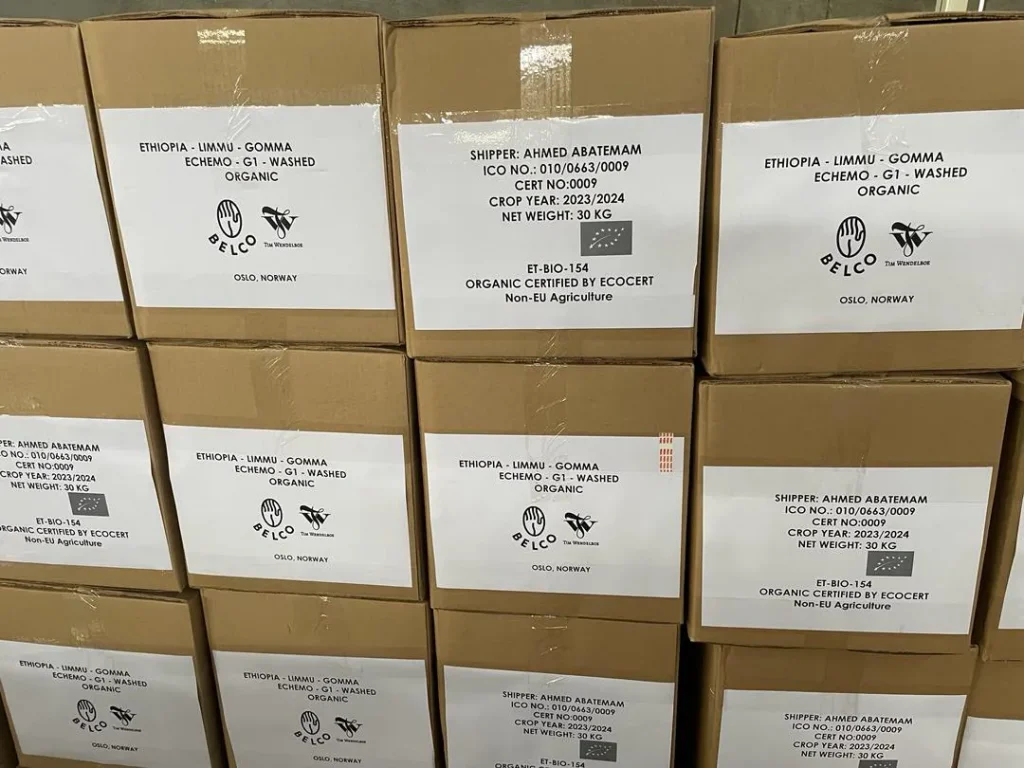Ethiopia
Echemo

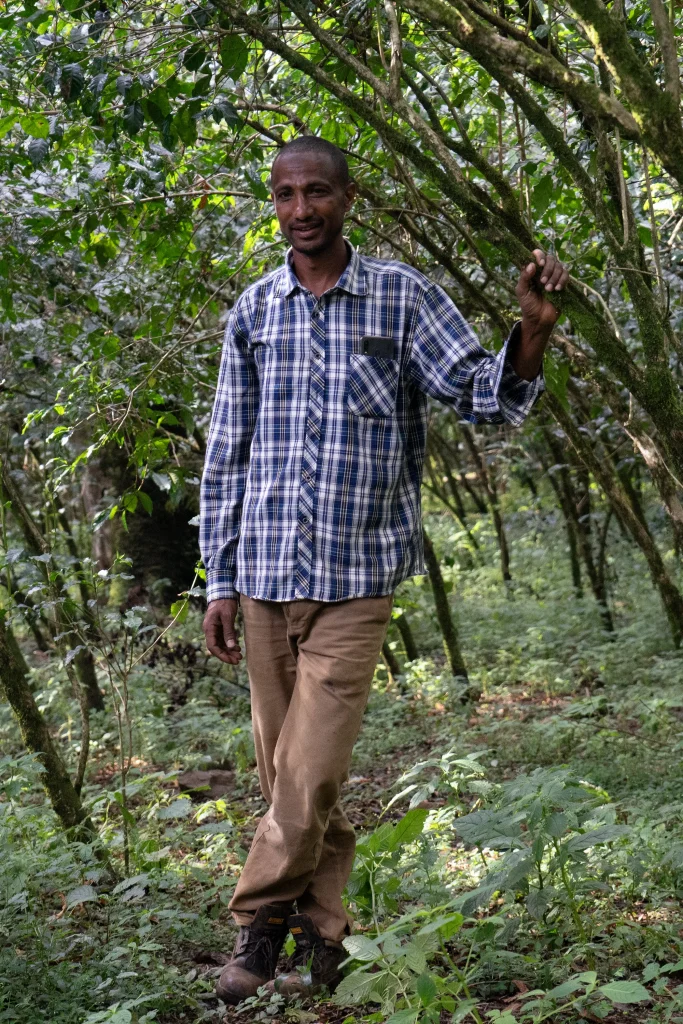
About Echemo
Khalid Shifa is the owner of Echemo. He is 3rd generation coffee farmer and inherited the 35 hectare farm from his father. Echemo is situated near the town of Agaro, in Goma in the south west part of Ethiopia. At 2100 meters above sea level the climate is moderate at daytime and cool at night. This makes the coffee cherries ripen slowly and the beans dense and of high quality.
The farm used to be an old forest, but over the years the native trees have been cut down to be used as firewood and building material. Khalid wants to reverse this process and is determined to leave the land in a better state than it was when he inherited the land. He is therefore re-planting different species of native trees among his coffee trees. These trees will eventually produce organic material for the soil and soil microbes to feed on as well as providing valuable shade for the coffee trees. The goal is to build an agro-forest system and the farm is already almost there.
Khalid is farming 100% organically and the farm and coffee is organic certified. This means that he is not using any pesticides, herbicides or fungicides. Nor is he using any mineral fertilisers. They remove weeds by manual labour and believe that by creating a healthy eco system, pests and diseases will be less of a problem.
The First Visit
My first visit to Echemo was in the end of 2018. The Ethiopian government had recently opened up for smaller coffee producers to be able to export their own coffee directly, bypassing the local coffee exchange system. When I heard this I immediately reached out to several companies working with coffee exports / import from Ethiopia and asked if they knew any small to mid sized farms that we could work more directly with. The Idea was to create a similar working model as we have implemented with farmers in Latin-America, where we over time can influence how the coffees are produced in order to get better quality control at farm level.
Eventually I went on a trip to Ethiopia in order to visit several farms of interest, but after two weeks of traveling there were only few farms and farmers that gave me a good feeling that we could actually establish a good relationship with common long term goals of lifting the value and quality of their coffees. Khalid was one of these farmers. A young entrepreneurial person with a farm capable of producing enough volumes for our needs. He had recently teamed up with the team at Belco, a french coffee and cacao importer, who with their Ethiopian office were collaborating with several farmers such as Khalid in order to raise the quality by offering trainings and to find markets for their coffees.
Even though I was mainly looking to purchase washed coffees in Ethiopia and Khalid only produced natural and honey processed coffees, I decided to purchase some coffees anyway. After all, Khalid had already planned to invest in a small wet mill on his farm.
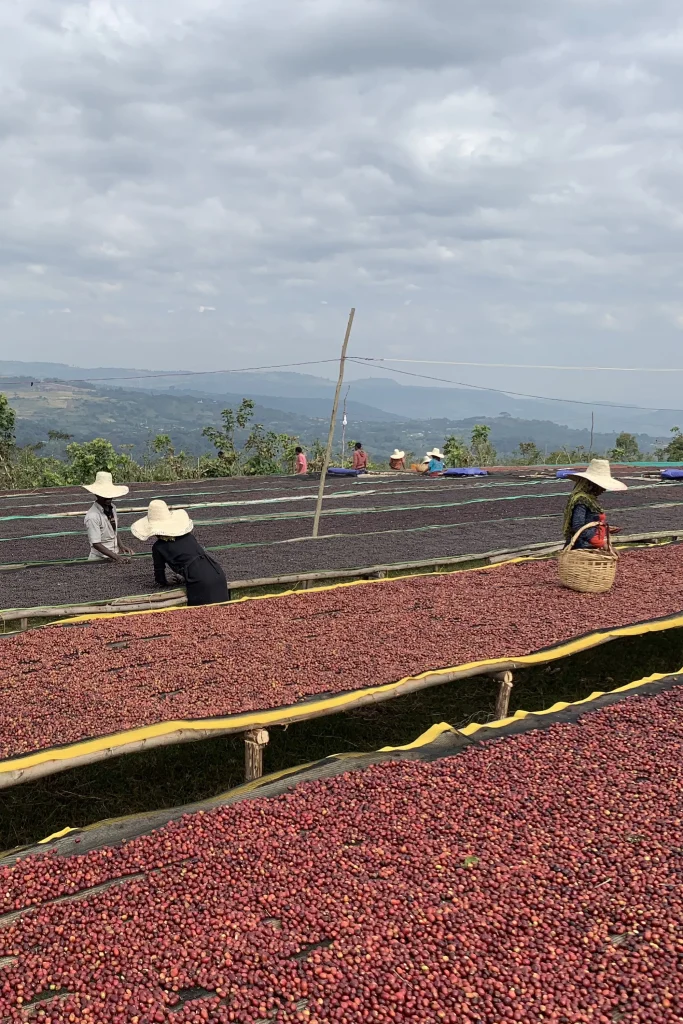
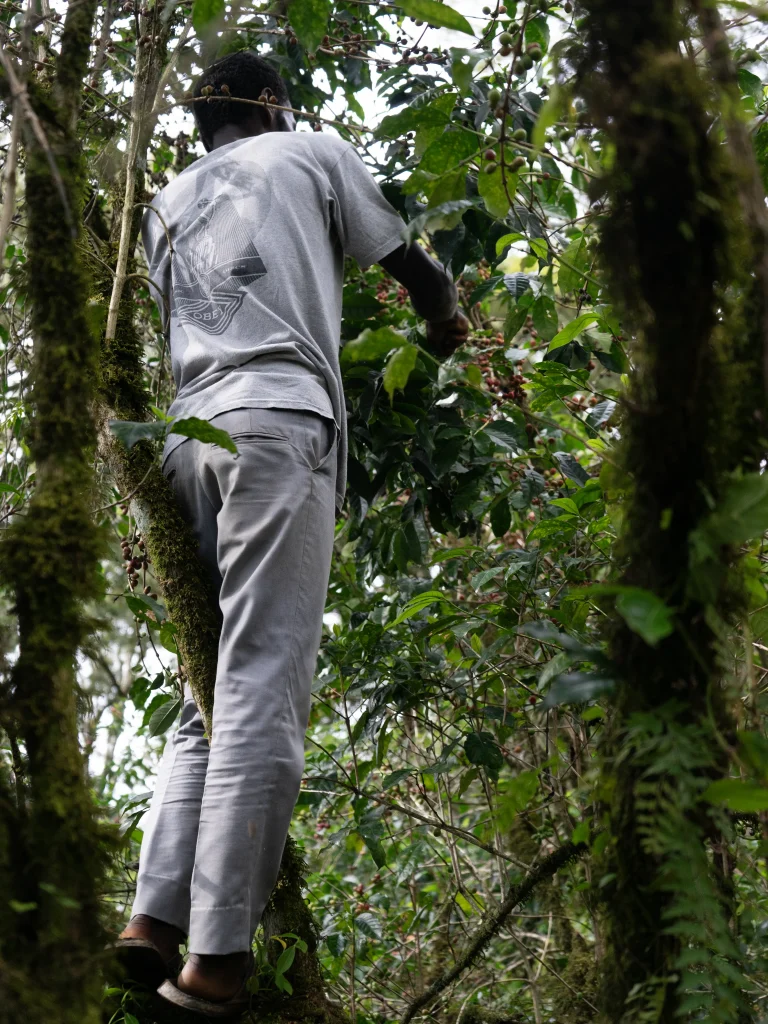
Heirloom Cultivars
What really stands out when you visit Echemo is that once you enter the farm, it is hard to se any coffee cherries. This is because most of the coffee trees are over 80 years old and have never been pruned or stumped. you are literally walking underneeth a canopy of coffee and that also means the coffee trees themselves create shade for the ground.
When grown in the wild, Arabica is actually a tall tree but when farmers cultivate coffee they normally prune the trees so that they are not taller than 2 meters. This is due to the impracticalities of picking the cherries when the trees get too tall, as most cherries are produced in the top of the tree where there is “new growth.” To pick the coffee Khalid and his workers need to actually climb the coffee trees in order to reach the coffee cherries.
The cultivars grown at Echemo is not known by name and Khalid was told by his grandfather that the seeds that he planted many years ago came from “nice” coffee trees growing wild in the nearby Coche forest. These type of cultivars are commonly called “Heirlooms” or Ethiopian Landrace cultivars.
About 12 hectares of the farm consist of these old trees whereas Khalid has planted another 17 hectares with new seedlings with seeds that came from the old trees.
Washed Coffees
As mentioned above, the first coffees we bought from Khalid were Natural and honey processed. Although the quality was quite good, I personally felt that these coffees were not very expressive and was slightly disappointed with the first harvest.
But the year later Khalid had already constructed a small wet mill on the farm and he was ready to produce some washed coffees for us. We asked him to produce a certain amount and to make sure he paid attention to both the picking, process and drying of the coffees.
When I received the first samples of his washed coffees, I was really happy to discover that they were a lot more expressive showing beautiful flavour notes of flowers, white tea and stone fruit. The coffee was clean and delicate and quite different from the washed coffees I was used to tasting from other washing stations and cooperatives both in Yirgacheffe but also near Agaro and Khalid’s farm. I believe this is because he is not growing the more common “improved” cultivars from the Jimma Agricultural Research Center, typically identified by numbers like 74110 and 74112.
I was very pleased with the results of his first washed coffees, but we still experienced some inconsistencies between bags and lots that Khalid produced for us in the first years. I was determined to re-visit Khalid in order to discuss how we could further improve his coffees and also increase the value of his coffees.
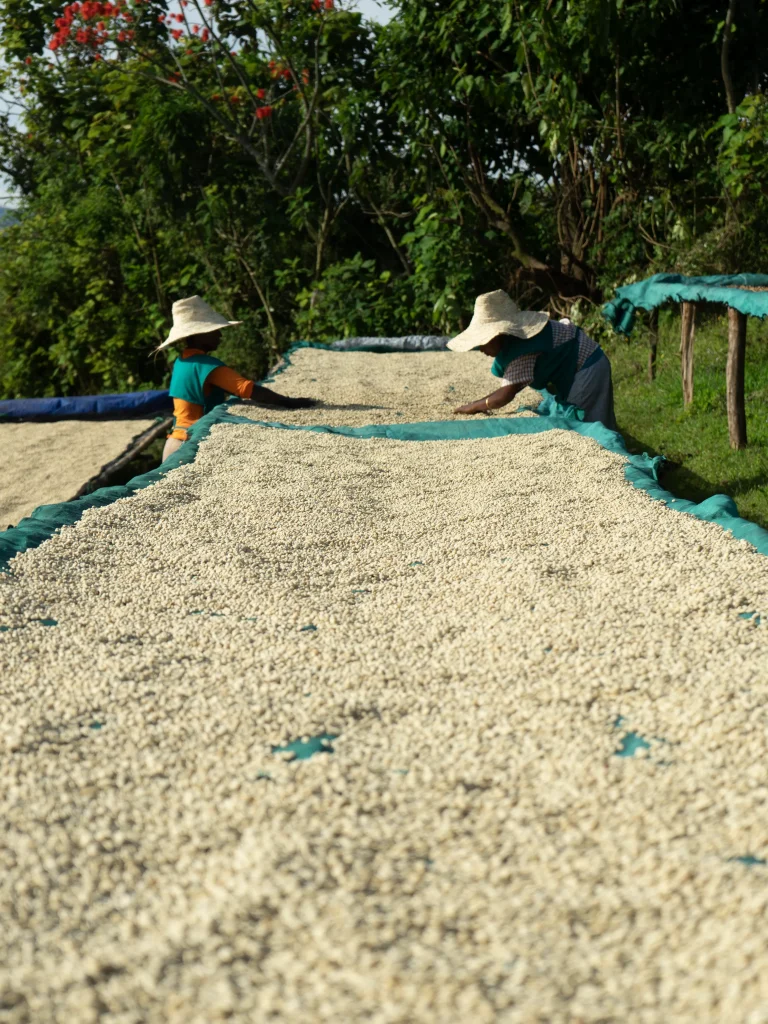
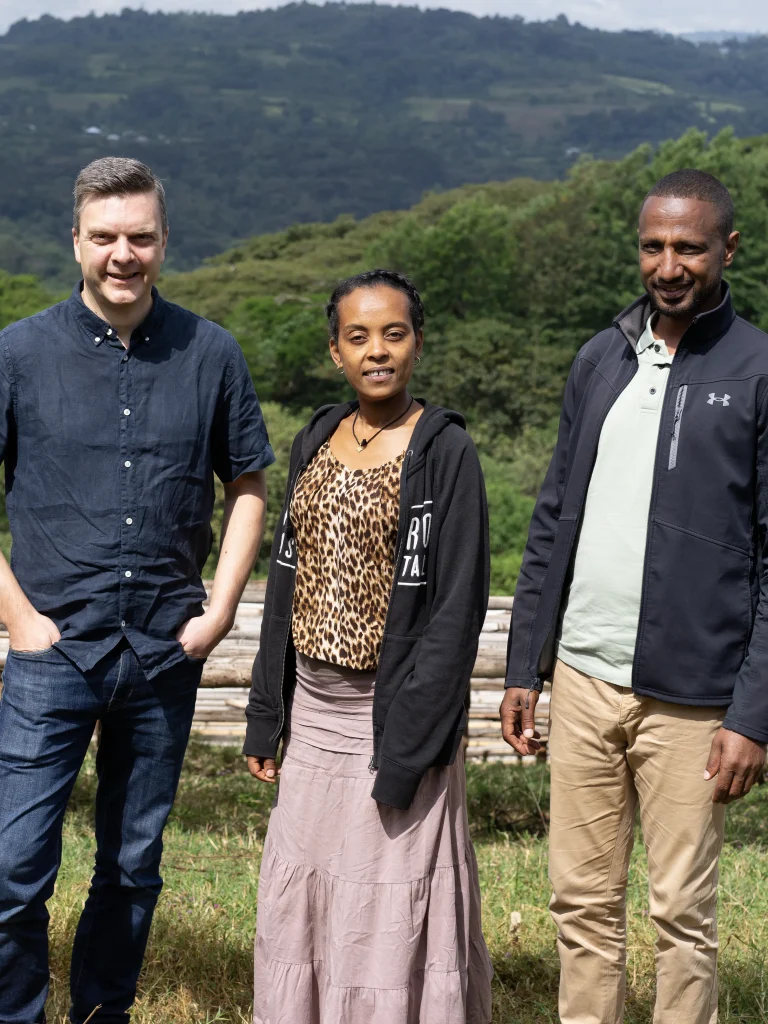
Improving Quality
In November 2023 I was finally able to re-visit Khalid at the start of his harvest. The goal was to go through his production steps to see if we could agree upon a protocol for him to follow in order to try to elevate the quality of his coffees.
As usual there were many small details that could be improved, some with small and others with major impact on the final quality. A few of the major ones included separation of every daily picking, keeping each daily lot stored in air tight grain pro bags after drying. Drying the coffees under shade nets, keeping better control of the fermentation and slightly changing the process were also part of what we changed and improved.
This meant that I was able to evaluate around 20 samples, each representing a daily picking, instead of just 2-3 samples like previous years where the coffees had been bulked together.
By doing this we were able to remove the lower qualities from the higher quality lots and in combination with better processing and drying practices the coffees really cleaned up and became more expressive.
We would not be able to change all of this in such a short time had it not been for the wonderful help and follow up done by Fantanesh Keleme and the whole team at Belco in Ethiopia, who made sure Khalid understood and followed the protocols for all the coffees he produced for us.
Picking & Sorting
Ripe coffee cherries are hand picked by local pickers and delivered to the farm in the afternoon where the cherries are hand sorted in order to remove any defect cherries. After sorting the cherries rest over night in a cherry hopper before the cherries are processed the next morning.
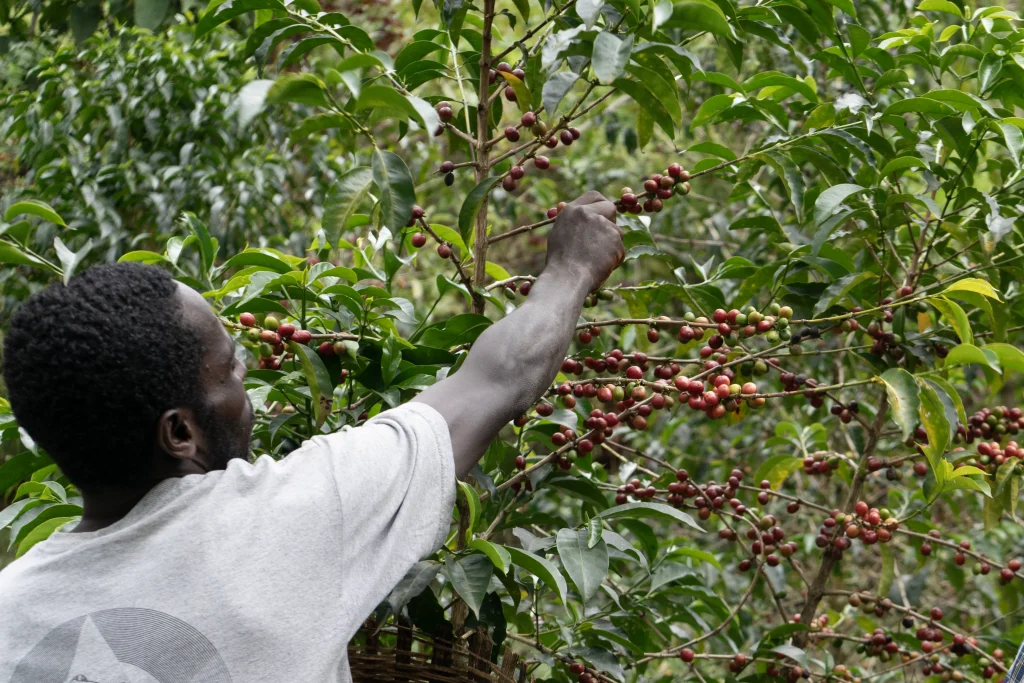
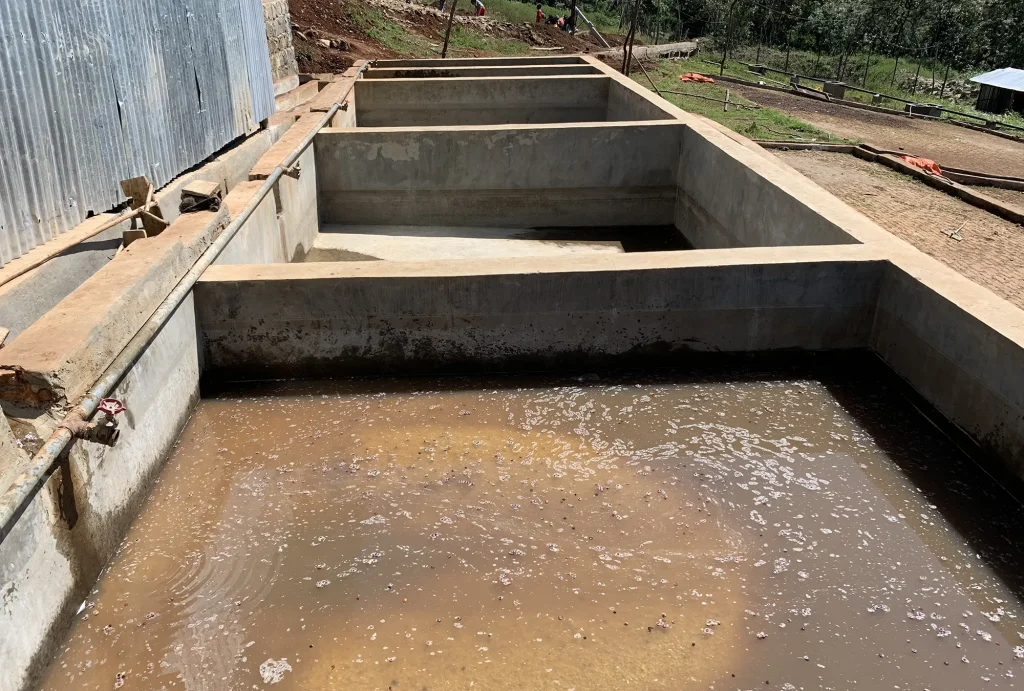
De-Pulping, Fermenting & Washing
The cherries are de-pulped in the next morning. Once de-pulped, the parchment coffee, with it’s mucilage still on, is wet fermented in clean water for about 24 hours. After fermentation the coffee is graded and washed in a washing channel in order to remove the remaining mucilage and grade out the light coffee beans.
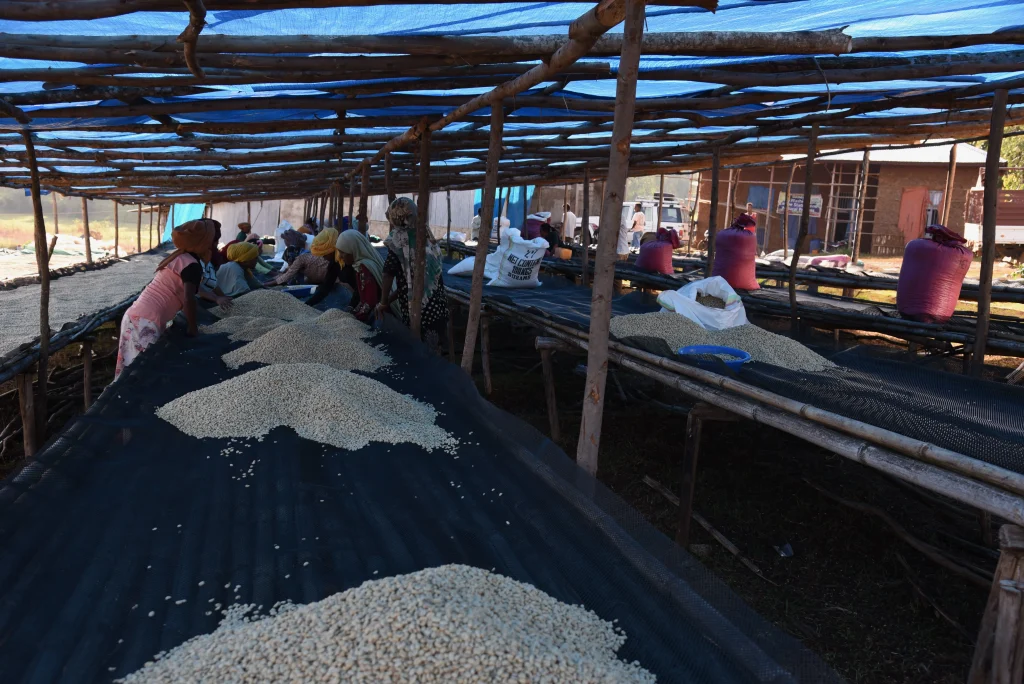
Drying
The coffees are dried on elevated drying tables covered with shade nets where defect parchment coffee gets sorted out by hand. Drying the coffee takes about 12 – 14 days. During daytime the coffees are raked to ensure even drying. The drying process is finished when the moisture content in the coffee beans is between 9- 11,5%.
Storage, Logistics & Milling
After drying, the coffees are stored in air tight grain pro bags. Each daily picking is stored in separate bags until its final moisture and quality is checked and verified. Lots with acceptable moisture content and quality are then delivered to the dry mill in Addis Ababa where the coffee gets cleaned and sorted before packaging for export. The coffee is vacuum packed in sealed plastic bags before it is exported.
